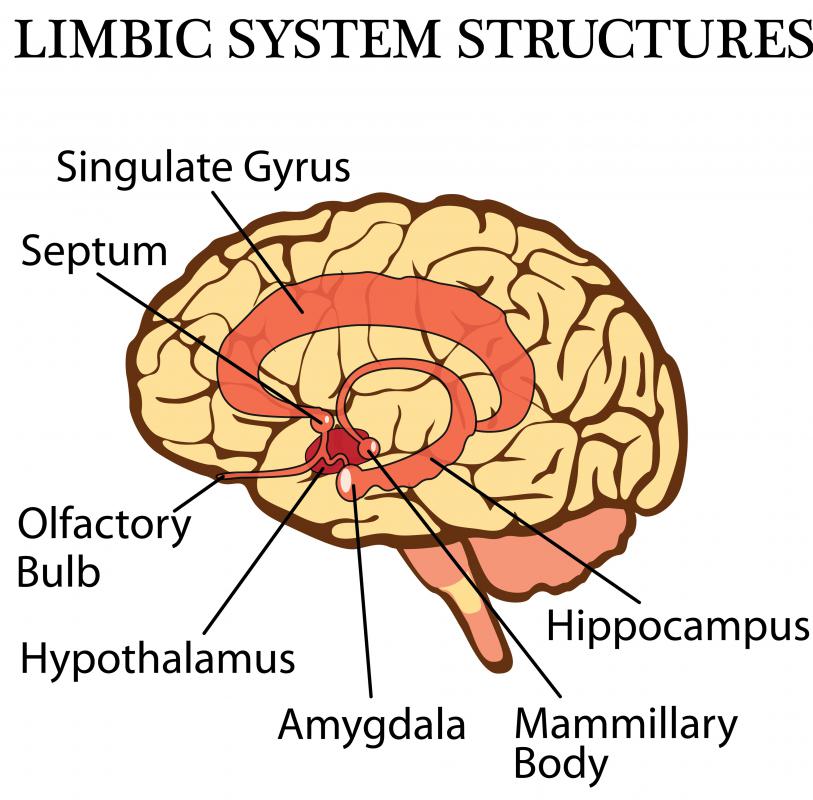At WiseGEEK, we're committed to delivering accurate, trustworthy information. Our expert-authored content is rigorously fact-checked and sourced from credible authorities. Discover how we uphold the highest standards in providing you with reliable knowledge.
What Is the Function of the Frontal Cortex?
The function of the frontal cortex in human anatomy is both varied and important. The frontal cortex, or frontal lobe, is among different regions that together comprise the cerebral cortex, the outer layer of the brain. This cortex is primarily involved in the higher reasoning processes of the brain and is involved in decision making, morality, and personality.
The cerebral cortex is made up of the frontal cortex, the temporal lobes, the parietal lobes, and the occipital lobe, in total equating to six broadly categorized regions. This particular lobe is located on the front, or anterior, aspect of the cranium, or above the eyebrows. This lobe can be further divided into four categories: lateral, polar, medial, and orbital parts. These parts are separated by troughs and peaks, known as sulci and gyri. These crevasses and bulges are what characteristically give the brain its folded appearance.

Reasoning and processing are the biggest roles of the frontal cortex. Many of these tasks are of subjective nature, so they are thought to have drastic effects on one's personality characteristics. Examples of such issues are determining good versus bad, acceptable versus unacceptable behavior, as well as similarities and differences between things. Another function of the frontal cortex is the retention of long-term, event-based memory and involvement in the limbic system.
Due to the complex nature of neurophysiology, the function of the frontal cortex in the limbic system is not completely understood. The evidence does suggest, however, that it is involved in some capacity. The frontal lobe is thought to be a highly evolved structure, and it is only present in very advanced mammals.
Damage to the brain may result in a deficiency in the function of the frontal cortex. This is usually of a traumatic or pharmaceutical nature. Manifestation of these deficiencies are varied but tend to exemplify themselves as a reduction in spontaneity, extreme social tendency changes, and difficulty managing risks. Additionally, creative abilities may significantly increase or become impaired, sexual interest may change, and sensory functions may be lessened.
There are, of course, other side affects, but most occur along the same lines. For example, there have been a number of documented cases regarding trauma to the frontal lobe with severe personality changes among the victims. A passive person, for instance, may acquire a severely violent demeanor, or a pacifist may find an affinity for carnage.
AS FEATURED ON:
AS FEATURED ON:











Discuss this Article
Post your comments